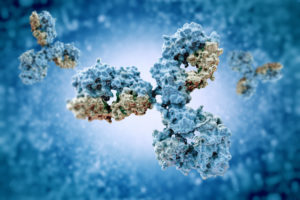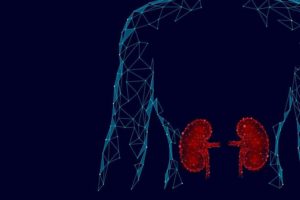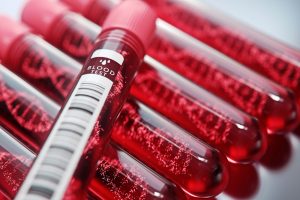Bay Biosciences provides high quality, clinical grade bio-samples, cryogenically preserved biopsy tissue samples, FFPE tissue blocks, sera (serum), plasma and peripheral blood mononuclear cells (PBMC) biofluid specimens from patients diagnosed with Autoimmune Vasculitis disease.
The sera (serum), plasma and PBMC biofluid samples are processed from patient’s peripheral whole-blood using customized collection and processing protocols. The human Vasculitis bio-specimens are collected from unique patients diagnosed with Autoimmune Vasculitis disorder and are provided to a valued pharmaceutical customer for genomics, proteomics and biomarker research, development and drug discovery.
Autoimmune Vasculitis Overview
Vasculitis is an autoimmune disease that causes inflammation and narrowing of blood vessels including arteries, veins and capillaries. These vessels which include arteries and veins that carry blood to and from the heart and the body’s organs. Vasculitis is also a term for a group of rare diseases that have in common inflammation of blood vessels. Vasculitis causes changes in the blood vessel walls, including thickening, weakening, narrowing or scarring. These changes can restrict blood flow, resulting in organ and tissue damage.
There are many types of vasculitis, and they may vary greatly in symptoms, severity and duration. Vasculitis might affect just one organ, or several organs at the same time. The condition can be short term (acute) or long lasting (chronic). Most types of vasculitis are rare, and the causes are generally not known. Vasculitis affects persons of both sexes, male and female of all ages. A few forms of vasculitis affect certain groups of people. For instance, Kawasaki disease occurs only in children. IgA Vasculitis (Henoch-Schönlein) is much more common in children than adults. On the other hand, giant cell arteritis occurs only in adults over 50 years old. Vasculitis can result in poor blood flow to tissues throughout the body, such as the lungs, nerves and skin. Vasculitis of the kidneys may produce no symptoms at first but is still a serious health problem. Vasculitis can be mild or disabling, or even lead to death. Patients can have one episode of vasculitis or have repeated episodes over period of several years.

Types of Vasculitis
- Behcet’s Disease
- Buerger’s Disease
- Churg-Strauss Syndrome
- Cryoglobulinemia
- Giant Cell Arteritis
- Granulomatosis with Polyangiitis
- Hencoh-Schonlein Purpura
- Kawasaki Disease
- Takayasu’s Arteritis
Signs and Symptoms of Vasculitis
The signs and symptoms of vasculitis vary greatly. They’re often related to decreased blood flow throughout the body.
General signs and symptoms of vasculitis include:
- Fever
- Headache
- Fatigue
- Weight loss
- General aches and pains
- Night sweats
- Rash
- Nerve problems, such as numbness or weakness
Signs and symptoms for specific types of Vasculitis
The following other signs and symptoms which are related only to certain types of vasculitis. The symptoms can develop in patients early and rapidly or in later stages of the disease:
- Behcet’s Disease- This condition causes inflammation of the arteries and veins. Signs and symptoms include mouth and genital ulcers, eye inflammation, and acne-like skin lesions.
- Buerger’s Disease- This disease causes inflammation and clots in the blood vessels of patients hands and feet, resulting in pain and ulcers in these areas. Rarely, Buerger’s disease can affect blood vessels in the abdomen, brain and heart. It is also called thromboangiitis Obliterans.
- Churg-Strauss Syndrome (Eosinophilic Granulomatosis with Polyangiitis)- This disease is very rare, it mainly affects the lungs, skin, kidneys, heart and nerves in the limbs. Signs and symptoms vary greatly and include asthma, skin changes, nerve pain and nasal allergies.
- Cryoglobulinemia- This disease results from abnormal proteins in the blood. Signs and symptoms include rash, joint pain, weakness, and numbness or tingling.
- Giant Cell Arteritis- This disease causes an inflammation of the arteries in the head, especially at the temples. Giant cell arteritis can cause headaches, scalp tenderness, jaw pain, blurred or double vision, and even blindness. It is also called temporal arteritis.
- Granulomatosis with Polyangiitis- This disease causes inflammation of the blood vessels in the nose, sinuses, throat, lungs and kidneys. Signs and symptoms include nasal stuffiness, sinus infections, nosebleeds and possibly coughing up blood. But most patients don’t have noticeable symptoms until the damage is more advanced.
- Henoch-Schonlein Purpura (IgA Vasculitis)- This disease is more common in children than in adults, and causes inflammation of the smallest blood vessels (capillaries) of the skin, joints, bowel and kidneys. Signs and symptoms include abdominal pain, blood in the urine, joint pain, and a rash on the buttocks or lower legs.
- Hypersensitivity Vasculitis- Also known as allergic vasculitis, the primary sign of this condition is red spots on the skin, usually on your lower legs. It can be triggered by an infection or an adverse reaction to medicine.
- Kawasaki Disease- This disease most often affects children younger than age 5. Signs and symptoms include fever, rash and redness of the eyes. It is also known as mucocutaneous lymph node syndrome.
- Microscopic Polyangiitis- This form of vasculitis affects small blood vessels, usually those in the kidneys, lungs or nerves. Patients may develop abdominal pain and a rash, fever, muscle pain and weight loss. If the lungs are affected, you may cough up blood.
- Polyarteritis Nodosa- This form of vasculitis usually affects the kidneys, the digestive tract, the nerves and the skin. Signs and symptoms include a rash, general malaise, weight loss, muscle and joint pain, abdominal pain after eating, high blood pressure, muscle pain and weakness, and kidney problems.
- Takayasu’s Arteritis- This form of vasculitis affects the larger arteries in the body, including the aorta. Signs and symptoms include joint pain, loss of pulse, high blood pressure, night sweats, fever, general malaise, appetite loss, headaches and visual changes.

Causes of Vasculitis
The exact cause of vasculitis is unknown, some types are related to a person’s genetic makeup. Others result from the immune system attacking blood vessel cells by mistake. Possible triggers for this immune system reaction include:
- Infections, such as hepatitis-B and hepatitis-C
- Blood cancers
- Immune system diseases, such as Rheumatoid Arthritis, Systemic Lupus Erythematosus (SLE) and Scleroderm
- Reactions to certain drugs
Blood vessels affected by Vasculitis may bleed or become inflamed. Inflammation can cause the layers of the blood vessel wall to thicken. This process narrows the blood vessels, reducing the amount of blood and therefore oxygen and vital nutrients that reaches the body’s tissues and organs.
Complications of Vasculitis
Vasculitis complications depend on the type and severity of the disease, or they may be related to side effects of the prescription medications used to treat the condition.
Complications of vasculitis include the following:
- Organ damage- Some types of vasculitis can be severe, causing damage to major organs.
- Blood clots and aneurysms- A blood clot may form in a blood vessel, obstructing blood flow. Rarely, vasculitis will cause a blood vessel to weaken and bulge, forming an aneurysm.
- Vision loss or blindness- This is a possible complication of untreated Giant Cell Arteritis disease.
- Infections– These include serious and life-threatening conditions, such as pneumonia and blood Infection, sepsis.

Detailed clinical data, elevated levels of antibodies, biomarkers, angiography, CT, MRI, genetic information, biopsy, pathology annotations associated with the Autoimmune Vasculitis patient’s specimens is provided to a valued customer for drug discover, development and research.
The Autoimmune Vasculitis disease sera (serum), plasma and peripheral blood mononuclear cells (PBMC) biofluid samples are processed from patients peripheral whole-blood using customized collection and processing protocols provided by the researcher.
Bay Biosciences is a global leader in providing researchers with high quality, clinical grade, fully characterized human tissue samples, bio-specimens and human bio-fluid collections from cancer (tumor) tissue, cancer sera (serum), cancer plasma, cancer PBMC and human tissue samples from most other therapeutic areas and diseases.
Bay Biosciences maintains and manages it’s own bio-repository, human tissue bank (biobank) consisting of thousands of diseased samples (specimens) and from normal healthy donors available in all formats and types. Our biobank procures and stores fully consented, deidentified and institutional review boards (IRB) approved human tissue samples and matched controls.
All our human human tissue collections, human specimens and human bio-fluids are provided with detailed samples associated patient’s clinical data. This critical patient’s clinical data includes information relating to their past and current disease, treatment history, lifestyle choices, biomarkers and genetic information. Patient’s data is extremely valuable for researchers and is used to help identify new effective treatments (drug discovery & development) in oncology, other therapeutic areas and diseases. This clinical information is critical to demonstrate their impact, monitor the safety of medicines, testing & diagnostics, and generate new knowledge about the causes of disease and illness.
Bay Biosciences banks wide variety of human tissue samples and biological samples including cryogenically preserved -80°C, fresh, fresh frozen tissue samples, tumor tissue samples, FFPE’s, tissue slides, with matching human bio-fluids, whole blood and blood derived products such as serum, plasma and PBMC’s.
Bay Biosciences is a global leader in collecting and providing human tissue samples according to the researchers specified requirements and customized, tailor made collection protocols. Please contact us anytime to discuss your special research projects and customized human tissue sample requirements.
Bay Biosciences provides human tissue samples (human specimens) from diseased and normal healthy donors; including peripheral whole-blood, amniotic fluid, bronchoalveolar lavage fluid (BAL), sputum, pleural effusion, cerebrospinal fluid (CSF), serum (sera), plasma, peripheral blood mononuclear cells (PBMC’s), saliva, Buffy coat, urine, stool samples, aqueous humor, vitreous humor, kidney stones, renal calculi, nephrolithiasis, urolithiasis and other bodily fluids from most diseases including cancer. We can also procure most human bio-specimens and can do special collections and requests of human samples that are difficult to find. All our human tissue samples are procured through IRB approved clinical protocols and procedures.
In addition to the standard processing protocols Bay Biosciences can also provide human plasma, serum, PBMC bio-fluid samples using custom processing protocols, you can buy donor specific sample collections in higher volumes and specified sample aliquoting from us. Bay Biosciences also provides human samples from normal healthy donors, volunteers, for controls and clinical research, contact us Now.
日本のお客様は、ベイバイオサイエンスジャパンBay Biosciences Japan またはhttp://baybiosciences-jp.com/contact/までご連絡ください。
